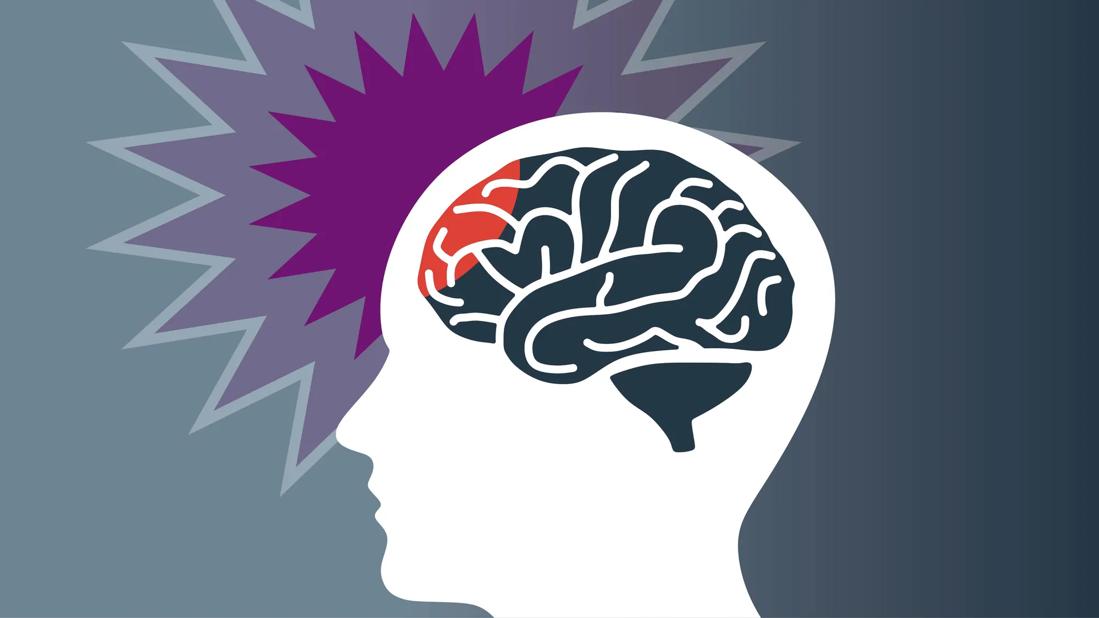Yes, there is a connection between this injury and disease, and not just for athletes who play high-impact sports

Image content: This image is available to view online.
View image online (https://assets.clevelandclinic.org/transform/e40fddb1-e917-41ad-85a3-8058f9b11c80/silhouette-brain-impact-480143008)
Silhouette of human head, with injured brain from outside impact
Professional athletes have been raising awareness about how concussions affect brain health later in life. Much of the attention so far has focused on dementia and Alzheimer’s disease. But research shows that concussions may also increase Parkinson’s disease risk.
Advertisement
Cleveland Clinic is a non-profit academic medical center. Advertising on our site helps support our mission. We do not endorse non-Cleveland Clinic products or services. Policy
“We used to believe concussions had to be severe to cause long-term effects,” says movement disorders nurse practitioner Shannon Shaffer, CNP. “Newer studies show that even mild concussions increase your chance of developing Parkinson’s disease.”
That information may be worrying if you or a loved one has ever had a concussion. Shaffer explains the latest research and what it might mean for you.
Healthcare providers rely on scientific investigations to better understand disease risk factors. Several studies show the connection between concussions and Parkinson’s disease.
One large study followed veterans, half with a history of concussion and half without. The risk of developing Parkinson’s disease was:
Another study included people with previously diagnosed concussions and a comparison group of people who had never been diagnosed with concussions. It found that:
“These studies are large and well-designed,” affirms Shaffer. “They provide strong evidence about how damaging head injuries can be, even if they’re relatively minor ones.”
Advertisement
Researchers don’t fully understand what might make someone more likely to develop Parkinson’s disease long after they experience a concussion.
“Parkinson’s disease occurs due to a loss of cells in the areas of your brain that control movement,” explains Shaffer. “We think both genetic and environmental factors are involved in this loss.”
The current thinking is that a specific gene (or genes) can be turned on or off by something in the cell’s environment, which affects how the cell functions. That could happen due to a toxic chemical, age-related changes or inflammation from an injury, like a concussion.
Connecting the dots between concussions and Parkinson’s disease is challenging because symptoms can take decades to show up. Researchers are actively looking for ways to diagnose Parkinson’s disease earlier. That work may help define the relationship better.
Does having a history of concussions mean you’re destined to develop Parkinson’s disease? No, says Shaffer. A concussion is probably not the most significant risk factor for Parkinson’s disease.
“Other factors, such as older age, family history and exposure to toxic chemicals, likely play a bigger role in the disease,” she notes.
Talk to a healthcare provider if you think you may be at risk for developing Parkinson’s disease.
If you’ve been diagnosed with the condition, there are steps you can take to feel your best. Exercise can help slow the progression of symptoms. Medications and deep brain stimulation may also provide relief. Work with your care team to find the best treatment plan for you.
Advertisement

Sign up for our Health Essentials emails for expert guidance on nutrition, fitness, sleep, skin care and more.
Learn more about our editorial process.
Advertisement
Getting back to normal after a head injury takes time — and patience
Know the warning signs, what to do and what not to do
The short answer from a concussion specialist
Eat fruits, vegetables, legumes, whole grains, lean proteins and healthy fats to help manage symptoms of this degenerative brain condition
Poor air quality, pesticides and chemicals — along with genetic factors — can increase your risk of this brain condition
While depression and anxiety are common and can worsen other symptoms, focusing on your emotional health can help
Watch for severe symptoms in older kids and adults, but kids under age 2 should always see a provider
Repeated trauma over time can have a cumulative effect
Prioritize your health by managing stress, strengthening your social connections and getting quality sleep
Bolsters, blankets, pillows and blocks can offer extra support, stability and comfort
Allergies, postnasal drip, asthma or reflux could be to blame for a cough that won’t quit